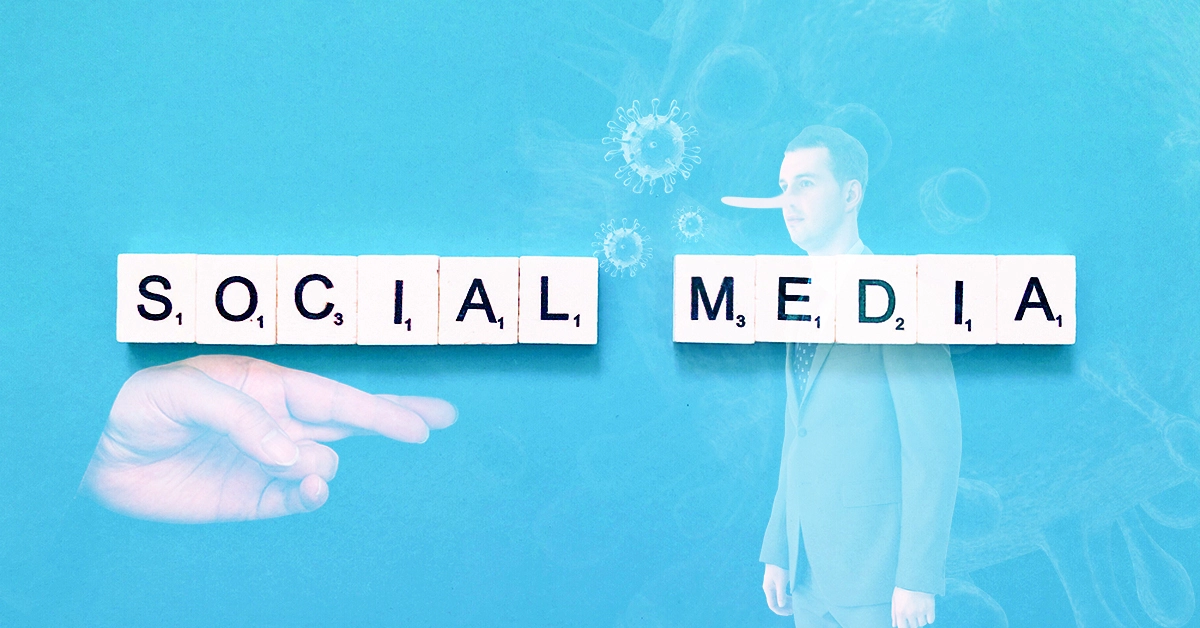In 2018, we looked at the way fake reviews, dishonest headlines and exaggerated claims were making it hard to distinguish between online fact and fiction. The coronavirus pandemic has made matters worse in many ways, with those who like peddling untruths able to latch on to the fear and uncertainty surrounding this invisible threat.
 The fakers are good at gauging the public's mood
The fakers are good at gauging the public's mood
A recent Panorama Investigation (BBC1 15.02.2021) hosted by the excellent investigative journalist Marianna Spring and produced by veteran documentary specialist John O'Kane, went into the significant amount of false information circulating on social media about the Covid-19 vaccines, such as allegations that they could alter your DNA. This followed on from a BBC News Reality check which covered this and a series of other scams, such as claims about the insertion of microchips into vaccine ingredients.
A significant number of members of the public believe these allegations to be credible, especially when they are presented by so-called experts, as the Panorama programme showed. The pandemic lockdowns and restrictions have deprived people of normal social contacts and have driven them increasingly online. The internet has offered invaluable means of communication during the Covid-19 crisis, but has also created an environment where those with malicious intent can thrive.
In this atmosphere of increased mistrust and suspicion on the one hand, and a desperation to find something or someone to believe in on the other, those who openly ply a trade in misinformation have found an unhindered market place. Where their activities would usually be met with derision and scorn, they are able to go about their business with an air of sadly-justified insouciance.
We have received numerous emails recently offering us the chance to buy likes on Facebook and followers on Twitter. Five-star reviews are for sale and glowing endorsements can be bought for a song.
It seems in many ways that these longstanding problems will always be with us; the internet seems to facilitate virtual lying in the way oxygen facilitates its real world equivalent.
And yet, there is still hope. We have written before how a message will be more believable if the messenger is trusted. It is up to us - all of us - to promote ourselves honestly, make purely factual claims and display only truthful reviews. Only by making sure that the validity of any claim we make in our marketing is verifiably true, can we engender trust and respect.
And is important to follow this advice. You may feel that everyone else is using fake claims to bolster their sales but there is mounting evidence that the public are becoming more astute in spotting when a source can - and can't - be trusted. Tweets are called out online for their misleading claims, and often the tweeter's profile is checked using a tool like TwitterAudit.com to see how many of the followers are fake - bought to give an unwarranted sense of size and gravitas.
At the time of writing these are two of our key stats - over 3.5k followers on Twitter and 25 5-star reviews on Google. Are they verifiable? You bet!

In 2018, the picture may have looked bleak - with fakery seeming to win out online. We wrote at the time:
The BBC has recently looked into the unwholesome practice of openly trading rapturous online reviews of such things as consumer products and leisure destinations.
This is yet another aspect of the ugly phenomenon of fake news and fake content on the web, potentially casting doubt on genuine testimonials and positive news that brands wish to publicise.
Target audiences may be increasingly cynical about what they read online, but they will recognise truth when it’s presented by companies that follow effective communications strategies.
Incentives to cheat
BBC Technology News carried an informative article “Fake five-star reviews being bought and sold online” following an investigation carried out by BBC 5 live. The incentives to gain glowing reports from users on sites such as Amazon and the review site Trustpilot are highly tempting.
As the article points out, a Chartered Institute of Marketing survey found that three quarters of UK adults use online review websites and half of the sample surveyed thought they had come across fake reviews. Some are easier to spot than others. For instance, a one-line titbit of unspecific hype needs to be regarded with suspicion, because it may have even been created by a bot.
Ecommerce and product review sites declare their zero tolerance of this practice, but it is all too easy for smart perpetrators to game the system. A recent article in Search Engine Land “Why we need to fight fake reviews” highlights the infamous but fascinating case of The Shed at Dulwich, a restaurant that didn’t exist but still managed to become “the #1 ranked restaurant in all of London on TripAdvisor.”
The fact that these practices existed three years ago and are still prevalent today could be seen as cause for despair but that is not how we see it. With online audiences becoming more savvy, and with trust becoming the most important currency online, we believe the key to marketing success both now and in the future, is honesty.
Values to communicate
If you trust the messenger then you are likely to trust the message. Communicating brand values and excellence of products and services takes time and strategic focus, but when trust is established then brand loyalty will follow.
In the online environment, effective marketing strategies can be invaluable for positioning a brand and communicating the positive and authentic messages that can foster engagement with its target audiences. This can include well-planned strategic campaigns on social and traditional media channels, possibly combined with PPC and organic SEO programmes to build upon the prominence of a brand and its messaging in search page rankings.
BBI Brandboost offers a range of strategic marketing services and has run successfully focused B2B and B2C campaigns across a range of industry sectors. Please contact us to discuss how we can differentiate your authentic and trustworthy communications from the fake news and fraudulent content on the web.